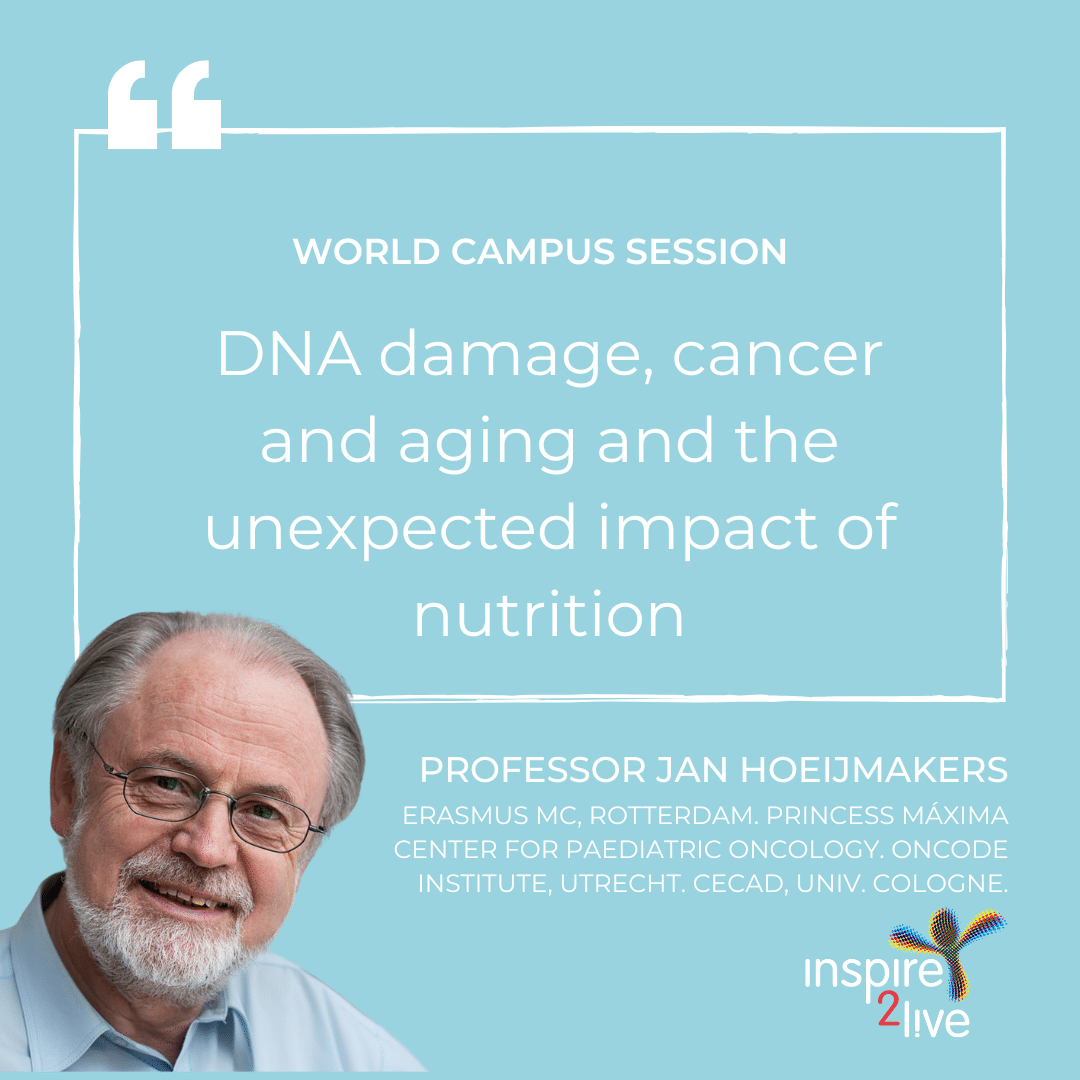Em. Prof. Molecular Genetics and group leader Jan Hoeijmakers of the Erasmus MC, Rotterdam, and the Princess Máxima Center for Paediatric Oncology and the Oncode Institute, Utrecht and the CECAD, Univ. Cologne talks to us about DNA damage, cancer and aging and the unexpected impact of nutrition.
Our DNA is constantly damaged from outside (e.g., numerous compounds in food) and from within (f.i., our own respiration produces oxygen radicals). The resulting DNA lesions can cause permanent changes (mutations) in the genetic information of a cell, which may activate oncogenes and inactivate tumor suppressor genes, promoting cancer. In addition, we discovered that accumulating DNA damage also causes aging and aging-related diseases by physically blocking gene expression (transcription) and DNA replication, which causes functional decline of cells and stem cell exhaustion. We also found that dietary restriction delays aging and reduces onset of cancer by lowering DNA damage. These findings have wide clinical implications for children suffering from rare DNA repair syndromes, for anti-cancer treatments (e.g., efficacy and long-terms side-effects of chemotherapy), surgery, organ transplantation, dementia’s such as Alzheimer, impacting major areas in medicine.
The Princess Máxima Center for pediatric oncology in Utrecht, The Netherlands, is a unique center where all high complex care and research for children with cancer in the Netherlands is concentrated. Its mission is to cure every child with cancer, with optimal quality of life. As the largest pediatric oncology center in Europe, we look beyond our national borders and also want to offer children who do not live in the Netherlands the opportunity to be treated in the Máxima Center.
Please visit also Jan Hoeijmakers Group | Oncode Institute

